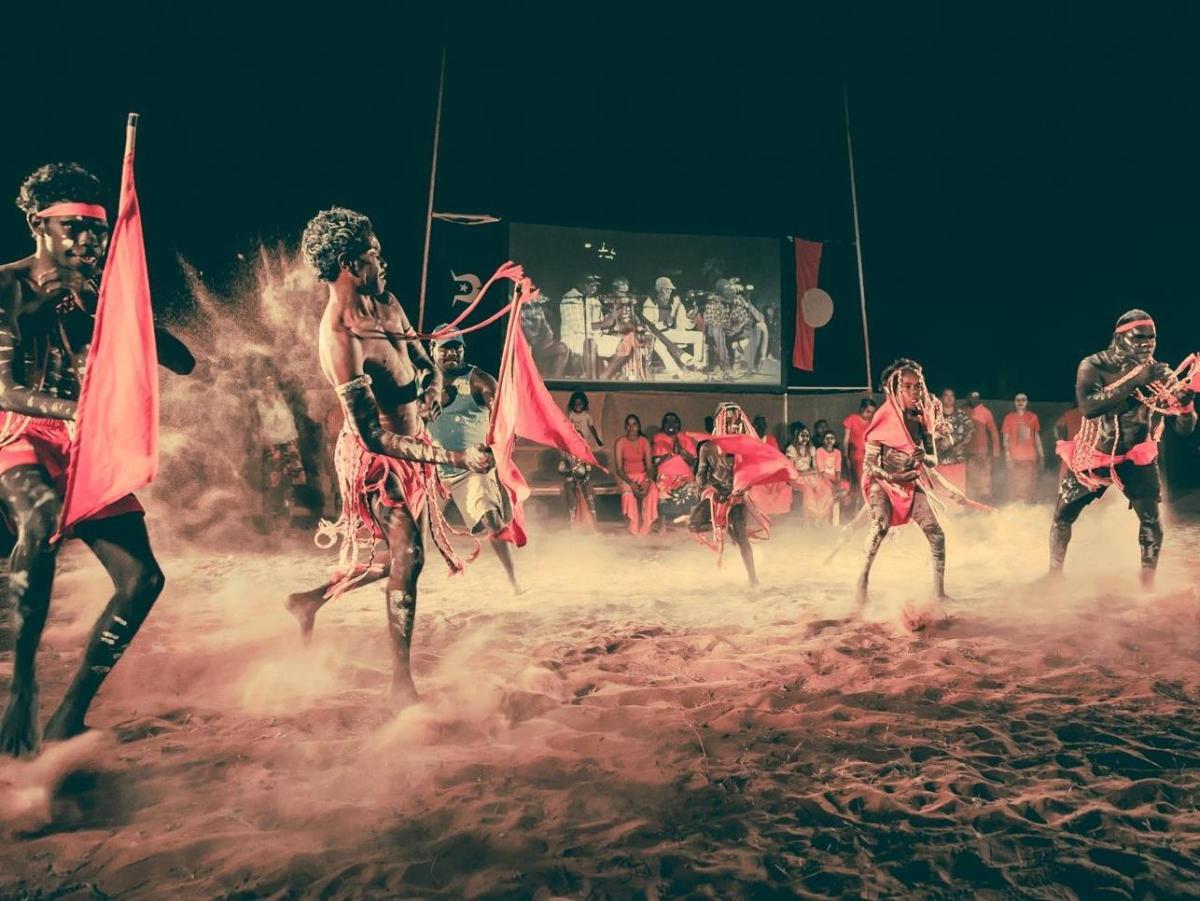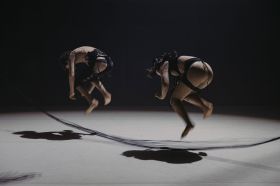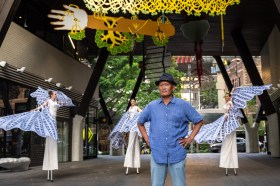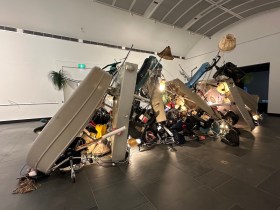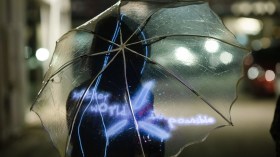Red Flag Dancers showcasing their traditional dance. DanceSite 2014; Photo: Benjamin Bayliss.
NOTE: Aboriginal and Torres Strait Islander readers are advised that the audio included in this article may contain voices of people who have passed.
Before the community took ownership, the Malandarri Festival was known as DanceSite. Changing the name of the festival was the first action by the local community, which now runs the event.
Festival Coordinator Lia Pa’apa’a said the change positions the festival clearly in community hands. ‘The first community meeting they had when I wasn’t there was when they changed the name, which was great that they felt they could and they were quite clear about what they wanted from this.’
The celebration of traditional and contemporary arts and cultural practices takes place in Borroloola, close to the Gulf of Carpentaria, in October. The festival will showcase traditional dance, music, children’s performances, cultural workshops, markets and more.
Visit Malandarri Festival October 21-22
The Malandarri Festival is the result of a four year relationship between Artback NT and the community of Borroloola as part of the Indigenous Traditional Dance Program (ITDP).
The aim of this ongoing program is to support local communities. By collaborating closely with local residents, Artback NT delivers sustainable and relevant projects that contribute to the cultural maintenance of the particular area.
This year Malandarri Festival is a celebration of the four local clan groups – the Yanyuwa, Garwa, Gurdanji and Mara people.
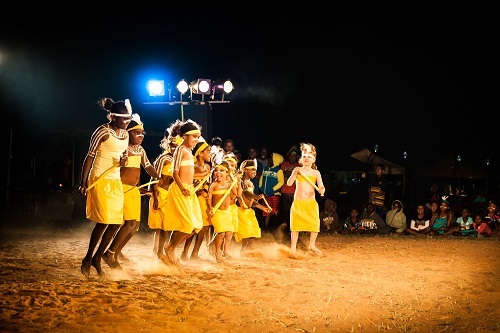
Gurdanji mob perform their showcase piece. DanceSite 2014; Photo: Benjamin Bayliss.
‘The festival itself is really the culmination of a yearlong series of activities which are embedded in the community, delivered by the community and is really about cultural resilience, intergenerational exchange, community development and just arts practice generally,’ said Pa’apa’a.
Every three years the program transitions to a new community. Borroloola, the site of Malandarri Festival, is the third community to participate in the program which first started ten years ago in Alice Springs.
The mainstay for the program is self-determination. It is about empowering local communities to design and deliver the events they want and which suit the specific cultural practices of the location.
To do so, upskilling locals is an important part of the process.
‘We’ve had the privilege of having four years in this community, which is very lucky, and we have identified all the key areas you need to deliver a festival and then we just broke them down and have been slowly skilling up different people in the community to have all those skills. The idea is that you don’t need people to fly in and fly out to help. Those production skills, those AV skills, those photography and video skills are all in the community as well as the producing skills that you need to oversee such a huge task,’ said Pa’apa’a.
For the 2016 Malandarri Festival, new and exciting work is being produced by the community as part of the festival program.
‘People are very excited and are creating new works about contemporary issues and bringing them into traditional dance format, which is something we trialled last year and was very successful and now communities are just coming up and saying, “we’re going to do our own.” There’s a level of initiative that’s happening that is self-governed and self-determined,’ said Pa’apa’a.
Creating resilience through intergenerational transfer
The program encourages important conversations about cultural knowledge between elders and younger generations.
‘The traditional dance and song system there is quite complex around who has ownership and rights to perform and sing and how that’s all done. And so there needs to be the right people in place and they need to be empowered to feel that they can,’ said Pa’apa’a.
While involving children and young people is definitely an important part of intergenerational exchange, Pa’apa’a said it was also important to empower middle-aged members of the community, ‘people who are working parents and who have a whole bunch of other things they are managing in their day to day lives, but also this really important need to maintain these cultural knowledges and protocols before they pass, and asking who are the next leaders? Who is taking over some of these roles?’
Pa’apa’a has taken a step back while the festival transitions to complete community ownership and Festival Coordinator Marlene Timothy has taken the helm alongside other community leaders, taking Malandarri Festival into the next phase of its creative life while Artback NT transition to the new community of Numbulwar.
Enquiries about the festival and potential attendance are welcome. For more information visit, http://www.artbacknt.com.au/index.php/itdp/dancesite/

